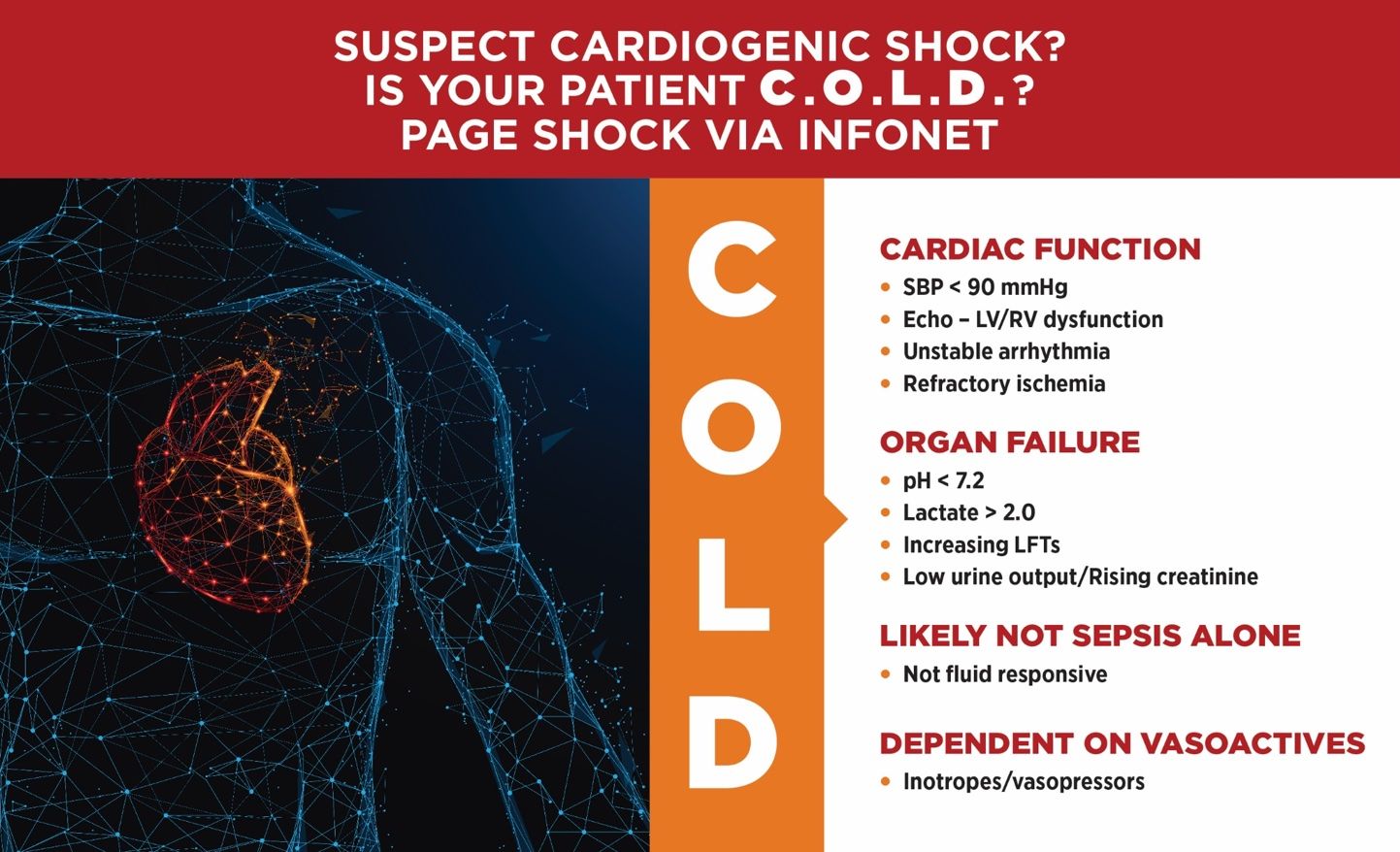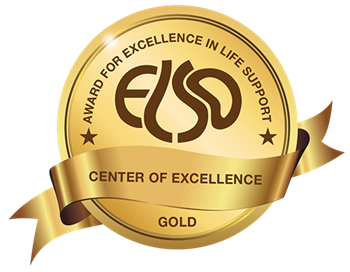
Patients who have a sudden deterioration in heart or lung function, and may require advanced support to sustain the rest of the body, are referred to the Cornell Shock Team for evaluation. The Cornell C.O.L.D. criteria helps identify patients whose hearts have become too weak to pump enough blood to the vital organs.
 Original artwork by Michael Karas
Original artwork by Michael Karas
Similarly, patients whose lungs have become too compromised to oxygenate the blood are referred to our team. This degree of heart or lung failure may be caused by many things: a massive heart attack, infection of the heart or lungs (bacteria or viruses including COVID-19 and influenza), postpartum cardiomyopathy, inflammatory disorders, or drug or medication-induced tissue injury. These patients will not survive without additional advanced support for their circulatory system.

NewYork-Presbyterian/Weill Cornell Medical Center achieved the Gold Level Center of Excellence Award from ELSO
The Weill Cornell Medicine Shock Team offers state-of-the-art treatment and exceptional care to help support these patients through their recovery. We are a multi-disciplinary team including cardiothoracic surgery, heart failure cardiology, interventional cardiology, anesthesiology critical care, and pulmonology working in concert to improve outcomes for our patients.
Pulmonary Critical Care Medicine
Our surgeons may offer extracorporeal life support (ECLS), also known as extracorporeal membrane oxygenation (ECMO), to support the heart, lungs and the rest of the body while the heart and lungs recover from their initial problem. These devices take the oxygen-poor blood from the venous system of the body, infuses the blood with oxygen, and pumps the oxygenated blood to the body and vital organs. The heart and lungs are kept in a resting state to promote healing.
The ECMO circuit consists of:
The staff at the Perelman Heart Center at New York-Presbyterian Hospital brought Peter Reikes back from the brink of death
